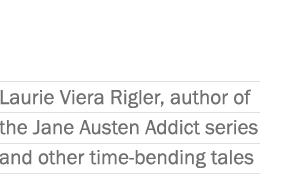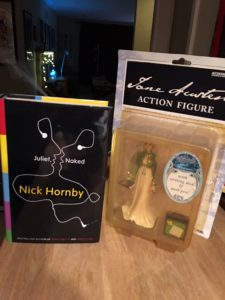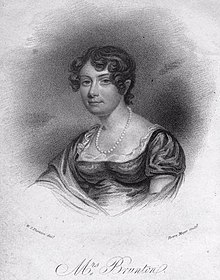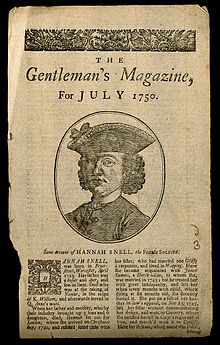I’m delighted to have been interviewed by the lovely and prolific fellow author and editor Christina Boyd of The Quill Ink, a wonderful site whose blog is packed with advice and insights for authors, and much more.
Enjoy!



I’m delighted to have been interviewed by the lovely and prolific fellow author and editor Christina Boyd of The Quill Ink, a wonderful site whose blog is packed with advice and insights for authors, and much more.
Enjoy!


If only Chat GPT were that simple to dismiss. But resist? That you can do.
Authors, filmmakers, musicians, visual artists, and other creatives are panicking about the appropriation of their work and the possibility of being replaced, rendered obsolete.
Perhaps my favorite commentary on Chat GPT is this brief, bruising one from Nick Cave’s Red Hand Files.
This one on Lit Hub, however, gives me hope.
Kind of gives new meaning to HAL’s classic line.
I’m new to the novels of Mhairi McFarlane and am definitely captivated. Speaking as a lifelong, voracious reader, what makes McFarlane’s novels stand out are that they not only fulfill my wish for uplifting reads, but also, and quite impressively, they pair a feel-good, laugh-out-loud romantic comedy vibe with an exploration of some very complex and painful issues. Sounds like a difficult feat to pull off, right?
It is, but Mhairi McFarlane does it beautifully and believably. After all, I cannot imagine any real-life happily ever after being attainable without facing some pretty tough and unpleasant truths about ourselves, others, and the choices we make.
Mhairi McFarlane brings her protagonists to a state of deep realization and wish for change, and in so doing, brings them to a well-earned happiness. Sort of like what I get from reading my favorite uplifting, self-revelatory author, Jane Austen. It’s all relatable and resonant. And hugely entertaining.
Can’t wait to read the next one!
On Twitter, someone asked for book recommendations for Austen fans, and what came to mind was not a continuation, a sequel, or an inspired-by. It was JULIET, NAKED by Nick Hornby.
Nick Hornby is my idea of a contemporary Jane Austen. So is Zadie Smith, particularly her novel ON BEAUTY. Both authors make profound observations of human nature, give us romance without sentimentality, have a divine sense of humor, and are simply master storytellers. In my writing workshops I inevitably read passages from both Hornby and Smith. 
For me, Hornby’s JULIET, NAKED brought to mind some of the online discussions that occur amongst Austen’s most devoted readers. A central premise of the book is that no matter how much the admirers of an artist’s work examine that work, study it, parse it for meaning, and become “experts,” they can never acquire irrefutable proof that the creator felt a certain way or had a particular type of experience at the time she created it. Bottom line is that it’s nothing more than speculation. And speculation is often wrong. (more…)
If any of my fellow storytellers deal with writer’s block from time to time, here’s some fun help. Fun help? That’s right. See you in the playground.

Photo by Marion Michele on Unsplash

Photo by Sneha Chekuri on Unsplash
[reprinted here with the kind permission of The Jane Austen Centre, celebrating Bath’s most famous resident and reporting the latest Austen-related news. ]
I am looking over Self Control again, & my opinion is confirmed of its’ being an excellently-meant, elegantly-written Work, without anything of Nature or Probability in it. I declare I do not know whether Laura’s passage down the American River, is not the most natural, possible, every-day thing she ever does.
 in fact, it seems to have become the accepted critical opinion, so much so that Brunton tends to be accused of faults she did not even have. Before I read Self-Control (1811) and Discipline(1814), I therefore assumed the novels were over-the-top in a wildly sentimental, Gothic fashion. (Several academic texts and reference works I’ve since looked at operate under the same illusion, which is making me wonder whether most academics actually read the books they write about.) I really should have paid more attention to the titles – whoever would give a sentimental potboiler such a forbidding title as Self-Control? (more…)
in fact, it seems to have become the accepted critical opinion, so much so that Brunton tends to be accused of faults she did not even have. Before I read Self-Control (1811) and Discipline(1814), I therefore assumed the novels were over-the-top in a wildly sentimental, Gothic fashion. (Several academic texts and reference works I’ve since looked at operate under the same illusion, which is making me wonder whether most academics actually read the books they write about.) I really should have paid more attention to the titles – whoever would give a sentimental potboiler such a forbidding title as Self-Control? (more…)
Hardly. And yet, the self-congratulating and clueless titular heroine of Jane Austen’s Emma rises above being the character that Austen thought that no one but herself would like. In the course of the story, Emma has a series of aha! moments about herself. More important, she acts on that self-awareness.
via GIPHYAlicia Silverstone in Clueless, a brilliant adaptation of Emma.
Once she tears down that wall of delusion and replaces it with wisdom, the heroine-in-training develops more self-awareness, more self-empowerment, and more capability to create happiness than she ever had before. That is what Emma does. For that is what Austen superpowers are all about. (more…)
Lizzy Bennet may be the one with all the flash and sparkle, but one should never underestimate one of Austen’s more reserved heroines, Anne Elliot of Persuasion.

Ciaran Hinds as Captain Wentworth and Amanda Root as Anne Elliot in “Persuasion,” directed by Roger Michell
At first glance, Anne may not seem to fit the typical ideal of a cape-wearing, save-the-day superhero, but let’s take a closer look at Miss Anne:
Who had the presence of mind that no one else had when Louisa Musgrove fell from the Cobb at Lyme?
That’s right; Anne Elliot did. Everyone else was wailing and flailing while she was the voice of calm and reason in the midst of the emergency. She was the one who gave Captain Wentworth calm and rational directions as to how to help Louisa. (more…)
[by Laura Boyle and reprinted here with the kind permission of The Jane Austen Centre, celebrating Bath’s most famous resident and reporting the latest Austen-related news. ]
In his diary entry of May 21, 1778, Parson Woodforde (Diary of a Country Parson) notes a trip that he took to Weston in order to see a “Famous Woman in Men’s Cloaths”:

 This curiousity was none other than Hannah Snell, subject of The Female Soldier; or The Surprising Life and Adventures of Hannah Snell, 1750.
This curiousity was none other than Hannah Snell, subject of The Female Soldier; or The Surprising Life and Adventures of Hannah Snell, 1750.
Born in Worcester, England on 23 April 1723, locals claim that she played a soldier even as a child. In 1740, Hannah moved to London and married James Summs on 6 January 1744.
In 1746, she gave birth to a daughter, Susannah, who died a year later. When her husband deserted her, she borrowed a male suit from her brother-in-law James Gray, assumed his name, and began to search for Summs. She later learned that her husband had been executed for murder. According to her account, she joined John Guise’s regiment, the 6th Regiment of Foot, in the army of the Duke of Cumberland against Bonnie Prince Charlie, and deserted when her sergeant gave her 500 lashes. However, the chronology of her life makes it very unlikely that she ever served in Guise’s regiment and this part of the story is likely to have been a fabrication. (more…)